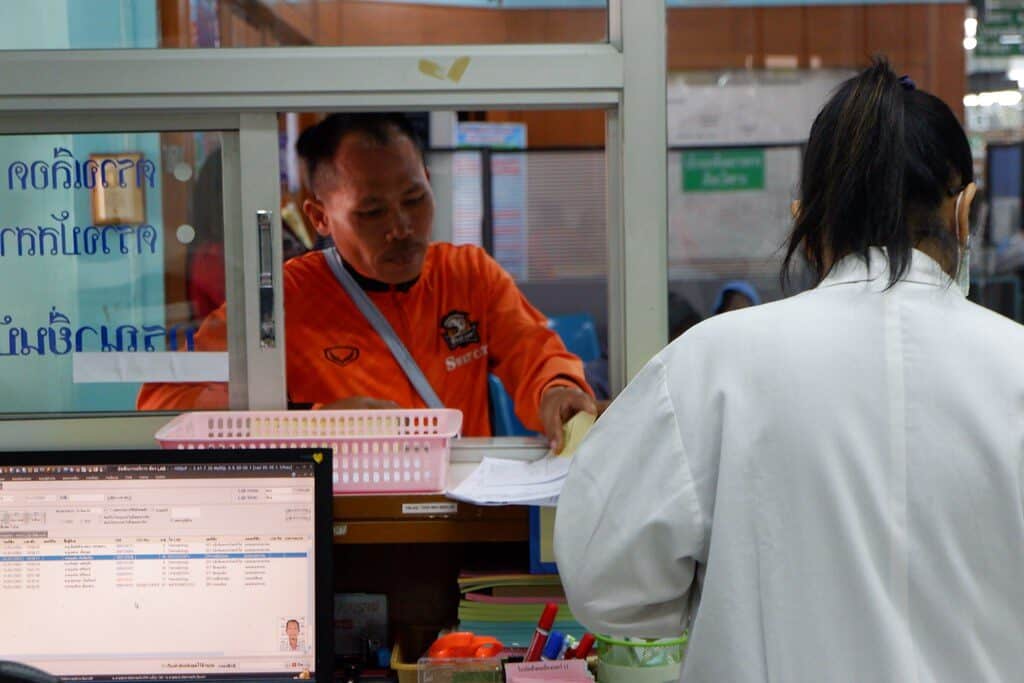A Comprehensive overview of Thailand’s Healthcare System
Thailand has gained recognition in recent years for its advancements in healthcare, boasting a system that serves as a model for many developing nations. A frequently asked question is whether Thai citizens receive free healthcare. The short answer is yes, but as with any healthcare system, the situation is more nuanced and worth exploring in detail. In this article, we’ll delve deep into the structure of Thailand’s healthcare system, its funding mechanisms, eligibility criteria, and the services provided under its various programs.
Understanding Thailand’s Universal Coverage Scheme (UCS)
At the heart of Thailand’s healthcare system lies the Universal Coverage Scheme (UCS), a landmark initiative introduced in 2002. Often referred to as the “30-baht scheme,” the UCS was designed to provide affordable healthcare access to all Thai citizens, especially those who were previously uninsured. Under this program, healthcare is not entirely free but is heavily subsidized, with patients paying a nominal fee of 30 baht per visit (approximately $1 USD). However, since 2006, even the 30-baht fee has been waived in many instances, effectively making most healthcare services free for eligible Thai citizens.
The UCS operates on the principle of universal healthcare, meaning that every Thai citizen is entitled to receive essential medical care without financial hardship. The scheme covers a wide range of medical services, including:
- Outpatient care
- Inpatient care
- Preventive services, such as vaccinations
- Maternity care
- Emergency services
- Treatment for chronic conditions
This system has played a pivotal role in significantly improving Thailand’s public health indicators, such as life expectancy and infant mortality rates.
Who Is Eligible for the UCS?
The Universal Coverage Scheme is designed exclusively for Thai nationals. To access healthcare under the UCS, individuals must hold a valid Thai ID card and register at a healthcare facility within their locality. This facility becomes their primary healthcare provider, meaning patients are typically required to seek treatment there unless they have a medical emergency or are referred elsewhere.
Non-citizens, such as expatriates, migrant workers, and tourists, are not eligible for the UCS and must rely on private health insurance, employer-sponsored coverage, or out-of-pocket payments.
Other Public Healthcare Programs in Thailand
Thailand’s healthcare system isn’t solely reliant on the UCS. In addition to the Universal Coverage Scheme, there are two other major public health programs that cater to specific groups of the population:
1. The Civil Servant Medical Benefit Scheme (CSMBS)
This program is specifically designed for government employees and their immediate families. The CSMBS offers comprehensive healthcare coverage, often with access to higher-quality facilities and services compared to the UCS. Unlike the UCS, there is no co-payment required, and patients can seek treatment at public and certain private hospitals.
The CSMBS is funded entirely by the government and provides coverage for:
- Prescription drugs
- Specialized treatments
- Chronic disease management
- Hospitalization costs
2. The Social Security Scheme (SSS)
The Social Security Scheme is tailored to individuals employed in the formal sector, particularly private-sector workers. Employers and employees contribute to the Social Security Fund, which finances the program. The SSS provides healthcare coverage for the insured, including:
- General medical care
- Maternity services
- Disability benefits
- Work-related injury treatment
While the SSS offers good coverage, it requires employees to receive care from specific hospitals within the network.
What Is Covered Under the Universal Coverage Scheme?
The UCS provides a broad spectrum of medical services. Here’s a closer look at what’s included:
1. Primary Care Services
UCS emphasizes primary healthcare as the foundation of the system. Registered individuals are assigned to a primary care unit, such as a local clinic or community hospital, which serves as their first point of contact for most medical needs.
2. Preventive Care
Preventive care is a cornerstone of the UCS, aimed at reducing the overall disease burden in the population. Services include:
- Vaccinations for children and adults
- Health screenings for conditions such as diabetes and hypertension
- Prenatal and postnatal care
3. Emergency and Urgent Care
Emergency medical services are also covered under the UCS, ensuring that patients receive life-saving treatment without upfront costs.
4. Chronic Disease Management
For patients with long-term conditions such as diabetes, heart disease, or hypertension, the UCS provides regular follow-ups, medications, and necessary medical interventions.
How Is Thailand’s Healthcare System Funded?
The UCS is primarily funded through general taxation. The Thai government allocates a significant portion of its annual budget to sustain the scheme. While this model ensures accessibility and affordability, it also poses challenges, particularly with the rising costs of healthcare due to an aging population and the increasing prevalence of chronic diseases.
In comparison, the CSMBS and SSS are funded through specific mechanisms:
- The CSMBS is financed entirely by government funds.
- The SSS is supported by contributions from employers, employees, and the government.
Challenges Facing Thailand’s Healthcare System
Despite its many successes, Thailand’s healthcare system faces several challenges:
1. Overcrowding in Public Hospitals
Public hospitals, which cater to the majority of UCS beneficiaries, often face overcrowding. This is especially true in urban areas where demand far exceeds capacity, leading to long wait times for non-emergency treatments.
2. Funding Constraints
While the UCS is largely tax-funded, sustaining this model becomes increasingly difficult as healthcare costs rise. The government must continuously find ways to balance cost-effectiveness with quality care.
3. Health Workforce Distribution
Rural areas often experience a shortage of healthcare professionals, such as doctors and nurses. This disparity in resource allocation can result in unequal access to quality care.
Healthcare Options for Non-Citizens in Thailand
Non-citizens residing in or visiting Thailand do not have access to free or subsidized healthcare under the UCS. However, they can choose from the following options:
1. Private Health Insurance
Many expatriates and long-term residents opt for private health insurance, which offers access to high-quality private hospitals. Policies vary widely in terms of coverage and cost.
2. Employer-Sponsored Insurance
Some employers provide healthcare benefits to foreign workers, covering treatment at designated hospitals.
3. Out-of-Pocket Payments
Tourists and short-term visitors often rely on out-of-pocket payments for medical services. While healthcare costs in Thailand are lower than in many Western countries, they can still be significant, particularly in private hospitals.
The Impact of Thailand’s Healthcare System on Public Health
Thailand’s Universal Coverage Scheme has had a transformative impact on public health outcomes. Key achievements include:
- Increased Life Expectancy: Improved access to medical care has contributed to higher life expectancy rates.
- Reduced Infant and Maternal Mortality: Enhanced prenatal and postnatal care services have significantly lowered mortality rates among mothers and newborns.
- Control of Communicable Diseases: Widespread vaccination programs and preventive care initiatives have curbed the spread of infectious diseases.




